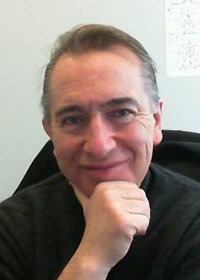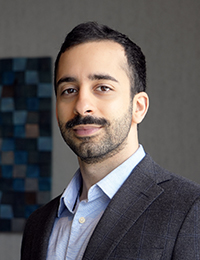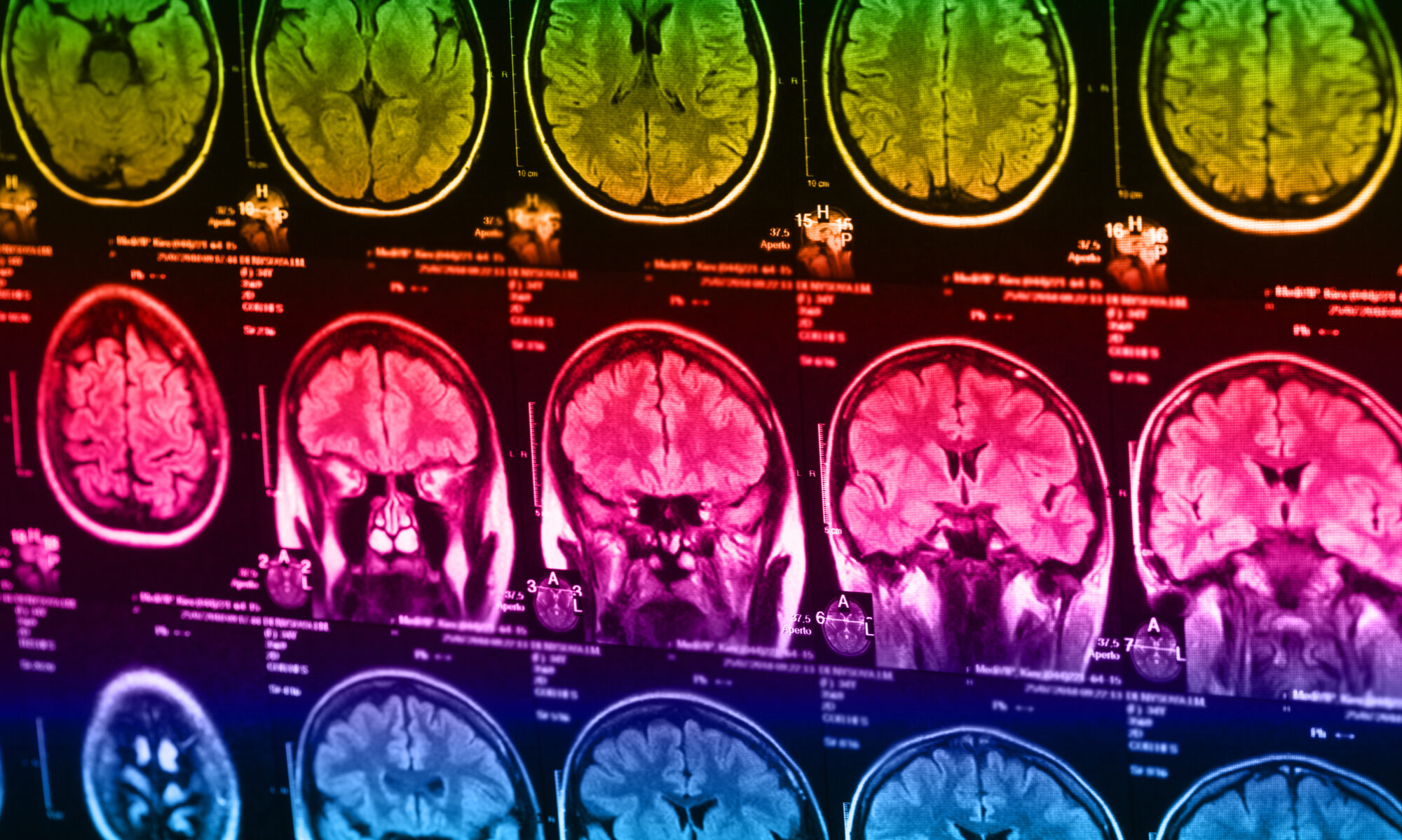The multidisciplinary BIDR program is centered in the Neuropathology Division, Department of Pathology, and led by Dr. Vassilis Koliatsos. Our administrative assistant is Ms. Marjorie McKenna. Our research team has diverse expertise, from cellular and molecular biology and animal models to human neuropathology and clinical neuropsychiatry. The goal of BIDR is to clarify pathological mechanisms driving poor outcomes after brain injury, including degeneration, to develop new and more effective treatments, and to generate important translational concepts, hypotheses and tools linking bench and bedside.
A very important aspect of BIDR is its function as a horizontal network intramural and extramural to the University and School of Medicine, especially laboratories in the Department of Neurology, the Wilmer Eye Institute, and Otolaryngology, engineers in the Hopkins Extreme Materials Institute, the Applied Physics Laboratory and the Army Research laboratory in Aberdeen, neuropathologists in the Uniformed Services University in the Health Sciences, and clinicians in our Departments of Neurology and Psychiatry.

Vassilis Koliatsos, MD
Dr. Koliatsos, Professor of Pathology (Neuropathology), Neurology, and Psychiatry and Behavioral Sciences, heads the BIDR program. Dr. Koliatsos has devoted his career in translational problems related to neural injury and repair and is particularly interested in the problem of traumatic and injury-associated axonopathy, its clinical implications for neural systems and networks, and experimental therapeutics including axon protection. Dr. Koliatsos is also a practicing neuropsychiatrist and takes care of the cognitive, behavioral and mood problems of patients with moderate to severe TBI.

Athanasios Alexandris, MBChB
Dr. Alexandris, Research Associate in the Division of Neuropathology, has background in Neuropathology from the UK and then joined the Koliatsos Lab to explore the role of Wallerian degeneration (WD) in trauma and other types of brain injury. Currently, his research focuses on the contribution of WD-related signaling in traumatic axonopathy and in demyelinating and neurodegenerative disorders. His ultimate goal is to unravel mechanisms of axonal homeostasis and identify novel therapeutic targets for diseases of the white matter.

Juan Troncoso, MD and associates in the Johns Hopkins Brain Resource Center
Dr. Troncoso, Professor of Pathology (Neuropathology) and Neurology, has more than 30-year experience in evaluating human TBI pathology at Johns Hopkins Hospital and the Office of the Chief Medical Examiner of the State of Maryland. He is the primary liaison of the BIDR with the Office of the Chief Medical Examiner and leads the efforts in the procurement of well-characterized human brains with various types of TBI and other forms of brain injury for research.

Meaghan Morris, MD, PhD
Dr. Morris, Assistant Professor of Pathology (Neuropathology), is board certified in Anatomic Pathology and Neuropathology. In addition to her clinical practice in the pathologic diagnosis of neurodegenerative diseases, Dr. Morris leads research focused on understanding the role of the microtubule associated protein tau in age-related dementias with a combination of studies of human brain tissue, cell culture models, and advanced molecular techniques. Dr Morris’s expertise

Phil Wong, PhD
Dr. Wong, Professor of Pathology (Neuropathology) and Neuroscience, is an expert in transgenic models of neurodegenerative diseases and he and his colleagues have created tau and TDP-43 transgenic mice. His expertise is invaluable in exploring the interaction between genetic susceptibility and repetitive trauma to generate CTE-like phenotypes.

Lee Martin, PhD
Dr. Martin, Professor of Pathology (Neuropathology) Neuroscience, and Anesthesiology and Critical Care Medicine and Director of the Pathobiology PhD Training Program, is an experimental neuropathologist with broad expertise in animal and cell physiology, neuroanatomy, biochemistry, and models of neurodegeneration. Besides other lines of work, Dr. Martin in an expert in cerebral hypoxia-ischemia from the molecular to systems level and has done important translational work on therapeutic hypothermia.

Charles Eberhart, MD, PhD
Dr. Charles Eberhart, Professor of Pathology (Neuropathology), Oncology, and Ophthalmology and Director of the Divisions of Neuropathology and Ophthalmic Pathology, is an important consultant in neuropathological evaluations of the visual system (optic nerve and retina) and plays an important liaison role with the Wilmer Eye Institute.
